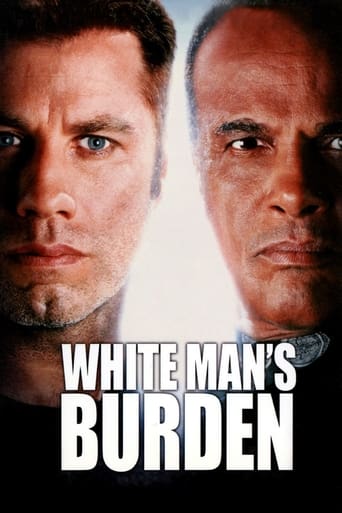Reality Just Switched Sides
"White Man's Burden," a thought-provoking 1995 film produced by Rysher Entertainment and HBO, delves into the complexities of racial dynamics in a fictionalized America where the social hierarchy is inverted. Directed by Desmond Nakano, the movie stars John Travolta as Louis Pinnock, a working-class white man, and Harry Belafonte as Thaddeus Thomas, a wealthy African American businessman. The narrative unfolds as Louis, struggling to make ends meet, kidnaps Thaddeus in a desperate bid to secure a better future for his family. This reversal of traditional racial roles serves as a powerful lens through which the film examines issues of prejudice, privilege, and systemic inequality. The film's setting, a world where African Americans hold societal power and whites are marginalized, is a bold narrative choice that forces viewers to confront their own biases and assumptions about race. Through its compelling storyline, "White Man's Burden" challenges audiences to consider how deeply ingrained racial stereotypes and discrimination can be, regardless of who holds power. The performances of Travolta and Belafonte are particularly noteworthy, as they bring depth and nuance to their characters, highlighting the human aspects of their struggle within an oppressive system. In addition to its strong performances, the film's cinematography and production design effectively create a believable alternate reality, enhancing the overall impact of the story. The visual elements work in tandem with the narrative to underscore the film's central themes, making the audience feel immersed in this reversed world. The dialogue, often sharp and poignant, further enriches the film, providing moments of reflection and insight into the characters' motivations and the broader societal issues at play. "White Man's Burden" may not have achieved widespread commercial success upon its release, but its relevance and importance have only grown over time. As discussions about race and inequality continue to evolve, the film remains a significant piece of cinema that encourages viewers to think critically about the structures that shape our society. By flipping the script on racial dynamics, "White Man's Burden" offers a unique perspective that is both unsettling and enlightening, making it a must-watch for those interested in exploring the complexities of race relations.
Năm:1995
Ngân sách7000000$
Thời lượng89 phút
Doanh thu9000000$
Thể loạiPhim Chính Kịch
Các quốc gia sản xuấtFranceUnited States of America


